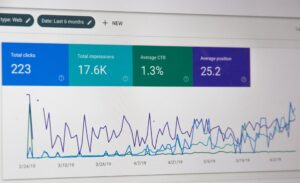The rise of IPTV has transformed the way viewers in the UK consume television. Unlike traditional cable and satellite broadcasting, IPTV leverages internet protocols to deliver live and on-demand content. Its success is attributed to its ability to meet modern consumer demands for flexibility, affordability, and choice. This article explores the key factors driving IPTV adoption and the broader implications for the entertainment landscape in the UK.
Convenience: The Core Appeal of IPTV
One of IPTV’s strongest selling points is its unparalleled convenience. Modern consumers value flexibility and ease of access, and IPTV caters to these preferences in several ways.
On-Demand Access
IPTV enables viewers to watch their favorite shows and movies on their own schedule. Unlike traditional broadcasting, which relies on fixed programming schedules, IPTV offers on-demand libraries that can be accessed anytime.
Multi-Device Compatibility
IPTV UK services are designed to work seamlessly across multiple devices, including smartphones, tablets, laptops, and smart TVs. This allows users to enjoy content wherever they are, enhancing the viewing experience.
Time-Shifted Viewing
Features such as pause, rewind, and replay give users greater control over their viewing experience. This flexibility has made IPTV particularly popular among busy professionals and younger demographics.
Table 1: Key Convenience Features of IPTV
| Feature | Benefit |
|---|---|
| On-Demand Access | View content anytime |
| Multi-Device Compatibility | Stream on preferred devices |
| Time-Shifted Viewing | Pause, rewind, or replay live TV |
Cost: An Affordable Alternative
Affordability is another major factor driving IPTV’s popularity. Compared to traditional cable and satellite services, IPTV offers cost-effective solutions that appeal to budget-conscious consumers.
Flexible Pricing Models
IPTV providers offer various subscription options, including pay-as-you-go plans, tiered packages, and standalone VOD purchases. These flexible models enable users to tailor their subscriptions to their needs and avoid unnecessary expenses.
No Installation Costs
Unlike cable and satellite services, which often require expensive equipment and installation fees, IPTV typically operates on existing internet connections and devices, reducing upfront costs.
Competitive Subscription Rates
Many IPTV providers offer competitive rates, with basic packages starting at as little as £10 per month. This affordability makes IPTV accessible to a broader audience.
Table 2: Cost Comparison of TV Services
| Service Type | Average Monthly Cost | Additional Fees |
| Traditional Cable/Satellite | £40-50 | Equipment, installation |
| IPTV | £10-20 | None |
Content Diversity: A Broad Spectrum of Choices
IPTV’s extensive content offerings cater to a wide range of tastes and preferences, making it a compelling alternative to traditional broadcasting.
Global and Local Content
IPTV services provide access to international channels and programming alongside local favorites, appealing to diverse audiences.
Exclusive Programming
Many IPTV platforms invest in exclusive shows, films, and live sports events to attract subscribers. This focus on unique content helps differentiate them from competitors.
Niche Genres and Communities
Unlike traditional broadcasters, IPTV caters to niche interests by offering specialized channels and genres, from indie films to global eSports tournaments.
Table 3: Content Comparison Between Traditional TV and IPTV
| Content Feature | Traditional TV | IPTV |
| Global Access | Limited | Extensive |
| Exclusive Programming | Rare | Frequent |
| Niche Genres | Limited | Extensive |
Implications for the Television Industry
The rapid adoption of IPTV in the UK presents challenges and opportunities for traditional broadcasters and new market entrants.
For Traditional Broadcasters
- Adaptation Required: Legacy providers must adapt by integrating IPTV features, such as on-demand and multi-device streaming, into their offerings.
- Competition for Content Rights: The battle for exclusive rights to popular programming intensifies as IPTV providers compete for market share.
For New Entrants
- Opportunities Abound: Emerging IPTV platforms can leverage advanced technology and consumer insights to disrupt the market.
- Focus on Differentiation: Offering unique content and innovative features will be crucial for standing out in a crowded market.
Conclusion
The growing adoption of IPTV in the UK is driven by its ability to meet consumer demands for convenience, cost-effectiveness, and diverse content. As IPTV continues to reshape the television industry, providers—both traditional and new—must adapt to thrive in this dynamic environment. By focusing on innovation and customer-centric strategies, the future of television in the UK promises to be more accessible, engaging, and personalized than ever before.


















